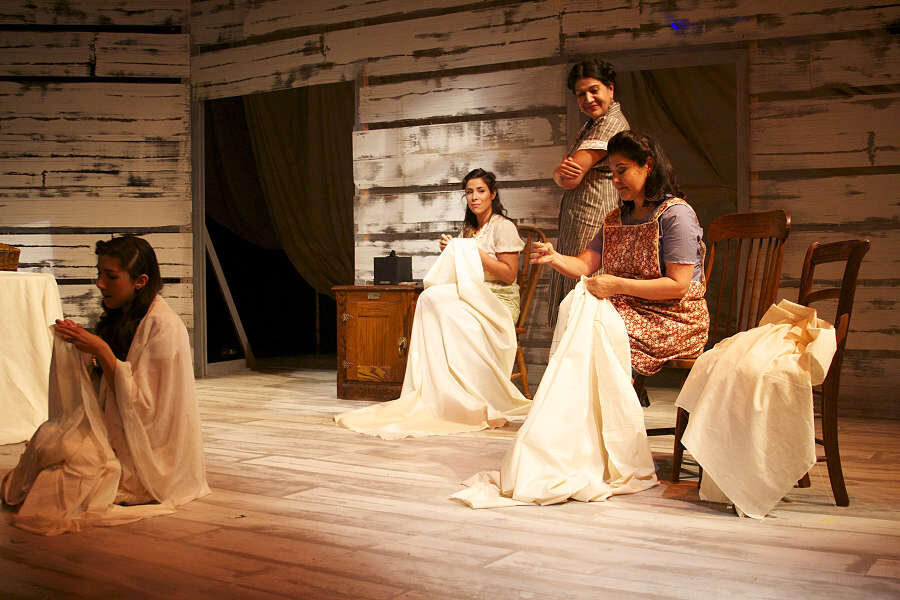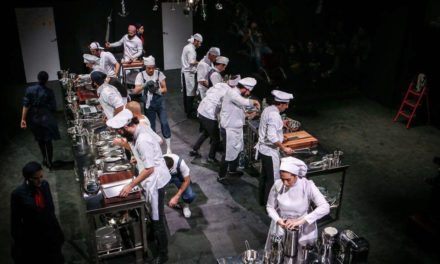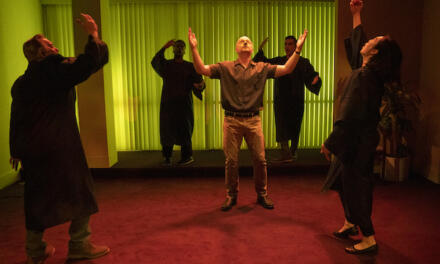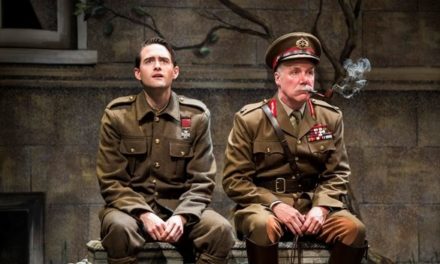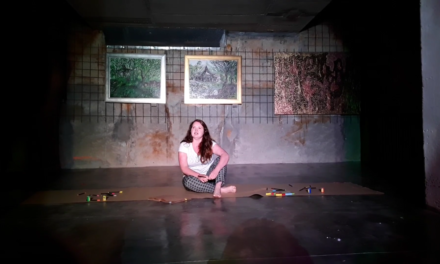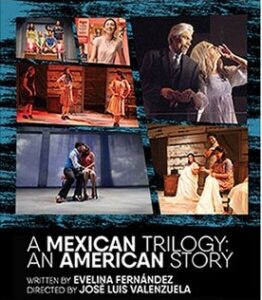 A Mexican Trilogy: American Story is showing at The Los Angeles Theatre Center from September 8 until October 9. Audiences will have the opportunity to see the 6-hour long trilogy in its entirety on Saturdays and Sundays with a dinner break in the middle, or else see Part A on Thursdays and Part B on Fridays. Written by Evelina Fernández, directed by José Luis Valenzuela, with cast that includes: Esperanza América, Robert Beltrán, Olivia Cristina Delgado, Evelina Fernández, Sam Golzari, Kenneth Miles, Ellington López, Sal López, Julio Macías, Xavi Moreno, Ella Saldaña North, Lucy Rodríguez, and Geoffrey Rivas
A Mexican Trilogy: American Story is showing at The Los Angeles Theatre Center from September 8 until October 9. Audiences will have the opportunity to see the 6-hour long trilogy in its entirety on Saturdays and Sundays with a dinner break in the middle, or else see Part A on Thursdays and Part B on Fridays. Written by Evelina Fernández, directed by José Luis Valenzuela, with cast that includes: Esperanza América, Robert Beltrán, Olivia Cristina Delgado, Evelina Fernández, Sam Golzari, Kenneth Miles, Ellington López, Sal López, Julio Macías, Xavi Moreno, Ella Saldaña North, Lucy Rodríguez, and Geoffrey Rivas
The staged production comprises three separate plays named after the theological virtues: Faith, Hope, and Charity. In 2012 the trilogy won the L.A. Drama Critics Circle’s Ted Schmitt Award for a world premiere of an outstanding new play and was then published by Samuel French.
Audiences will embark on a journey that covers 60 years of Mexican-American history alongside the Morales family. They will traverse the southwest beginning at a mining town in Arizona during World War II, followed by a stay in Phoenix during the Cuban Missile Crisis, and finish in Los Angeles in 2005, the year Pope John Paul II died. Two major and life-changing events in the Morales family include the Mexican Revolution of 1910 and the loss of a son in the Iraq War.
Evelina Fernández is from East L.A. and in the 1960s became involved with the Chicano movement. She started her career in professional theater in Luis Valdez’s Zoot Suit, which first played at the Mark Taper Forum before going to Broadway in 1979. Since 1986 Ms. Fernández and her husband have run the Latino Theater Company, which embraced the ideals of the Chicano Theater Movement, and has always been interested in promoting activism through art. The company’s purpose has been to keep alive and celebrate the stories of the community. Chantal Rodríguez points out that the Chicano Theater Movement of the 60’s and 70’s “sought direct political action – emboldening the UFW strikes, and called for social change in many areas, while also reaffirming the beauty of Chicano identities and unearthing its untold histories.”
In an interview with Rob Weinert Kendt, Fernández says that originally she was not in Part 2 (Hope) when they first staged it, but that she had to get back on the stage because she hates being in the audience. For her, it’s unbearable “to sit out there and watch,” which explains her political activism as well as her relentless commitment to the theatre.
This post was written by the author in their personal capacity.The opinions expressed in this article are the author’s own and do not reflect the view of The Theatre Times, their staff or collaborators.
This post was written by Margarita Vargas.
The views expressed here belong to the author and do not necessarily reflect our views and opinions.

